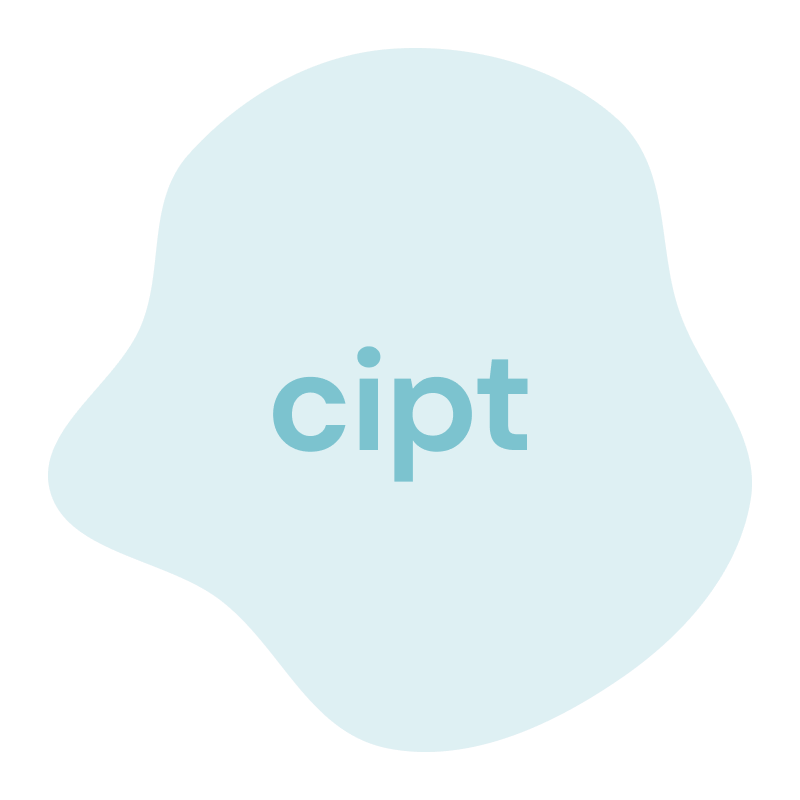Privacy engineering is becoming an increasingly important role in many organizations. As the amount of personal data being processed has rapidly increased, it is more important now than ever before to have professionals skilled in the proper implementation of privacy-enhancing strategies. Privacy must be directly incorporated into products and services. Doing so effectively means considering privacy from the outset of design and systems architecture. The Certified Information Privacy Technologist (CIPT) certification provides foundational expertise for technology professionals looking to take a leading role in data protection.
The CIPT certification is administered by the International Association of Privacy Professionals (IAPP), a U.S.-based non-profit organization that has a global reach. The privacy-focused professional certifications administered by the IAPP are highly sought after in the global privacy and data protection industry. The CIPT designation is not only the gold standard for privacy professionals looking to verify their expertise in privacy engineering, it is the only certification focused on data protection as a subspecialty for technology professionals.
The CIPT certification can be thought of as covering the technical “how” of privacy protection. With the CIPT certification, you indicate to others that you are a true expert in incorporating privacy-enhancing strategies and techniques into products and services. It shows that you have a keen understanding of how to model privacy threats and mitigate those risk through adequate privacy controls.
What is Required to Obtain and Maintain the CIPT Certification?
To gain CIPT certification, there is only one requirement—you must successfully complete a qualifying exam administered by the IAPP. This qualifying exam is a 90-question, multiple choice test that you have two and a half hours to complete.
No prerequisites, such as time in the privacy field, are required to sit for the CIPT exam. Nor do you need to know how to develop computer software. Because of this, the CIPT certification provides a great way for professionals to break into the development and implementation of privacy-enhancing technology.
Like all IAPP certifications, to maintain your designation as a CIPT, you must complete 20 hours of Continuing Privacy Education (CPE) on a bi-annual basis. You must pay an annual “certification maintenance fee” of $250 to maintain your accreditation, but the IAPP waives this fee if you are an IAPP “member.”
- Learn about the costs of IAPP certification by visiting our article “What Are the Costs of IAPP Certification?”
What Are the Benefits of CIPT Certification?
There are many benefits to IAPP certification, and CIPT accreditation is no exception. The CIPT certification can help set you up for professional success by positioning you to earn more money and qualify for new roles.
On average, privacy professionals obtaining IAPP certification earn up to 13% more per year than their unaccredited colleagues. That is according to one recent survey available here (access for IAPP members only).
As compliance with the global web of privacy laws is becoming increasingly important for most organizations, the number of privacy engineering roles is exploding. Unsurprisingly, organizations often identify the CIPT designation as a requirement or preference for these types of positions. That holds true across jurisdictions and industries.
Who Typically Obtains the CIPT Certification?
With its focus on incorporating privacy into products or services, the CIPT exam is typically sought by more technically inclined professionals. Software engineers, systems engineers, and similar professionals all commonly seek the CIPT certification.
Increasingly, however, professionals from other fields also obtain the CIPT certification. Project managers, for example, find the knowledge required to pass the CIPT certification helpful as a means of establishing a common language that can be used to communicate with privacy engineers. Lawyers may find that understanding the nitty-gritty of privacy-enhancing technologies is helpful in advising how best to comply with applicable privacy laws and regulations. Indeed, in the United States, the American Bar Association requires that lawyers obtain the Certified Information Privacy Professional (CIPP/US) certification and one of either the CIPT or the Certified Information Privacy Manager (CIPM) certifications to qualify as a “privacy law specialist.”
- Learn more about what it takes to qualify as a “Privacy Law Specialist” by visiting our article “Privacy Law Certification: The PLS Designation”
What is Tested on the CIPT Exam?
For each of its exams, the IAPP sets forth the curriculum subject to testing in two documents: (1) the Body of Knowledge; and (2) the Exam Blueprint. Each of these documents is updated annually. This is the case for the CIPT exam.
The Body of Knowledge and Exam Blueprint is the outline of all concepts and topics that candidates will need to know to obtain their certification, and it tells students how heavily certain areas in the Body of Knowledge are tested.
The CIPT Body of Knowledge has seven primary knowledge “domains”:
- (1) Foundational Principles
- (2) The Privacy Technologist’s Role in the Context of the Organization
- (3) Privacy Risks, Threats and Violations
- (4) Privacy-Enhancing Strategies, Techniques & Technologies
- (5) Privacy by Design
- (6) Privacy Engineering
- (7) Evolving or Emerging Technologies in Privacy
As noted above, the topics included in the seven primary domains will be tested in multiple choice format. There are two different types of questions that appear on the CIPT exam. The first are straight forward questions testing specific knowledge. The second type of question requires application of knowledge. Test takers are presented with a short fact pattern, followed by questions asking them to apply privacy-based knowledge.
- Learn more about what it takes to pass the CIPT exam by visiting our explanatory article “What is a Passing Score on IAPP Exams?”
What Comes with Privacy Bootcamp’s CIPT Test Preparation Course?
At Privacy Bootcamp, we have designed our CIPT test preparation course to be a comprehensive, all-in-one training resource. Our course comes with the following:
- An e-textbook study guide broken down into more than 110 guided learning modules
- More than 800 digital flashcards
- A bank of more than 450 practice exam questions
- More than 20 digital exercises
- A quick reference “cheat sheet” that pulls out the important points of each study module and provides a concise outline of what you need to know to find success
- A live-exam environment that is modeled after the actual exam software, which allows our students to take practice exams under real-world conditions
You can see how we’ve organized our CIPT course by visiting the Preview Page or the CIPT Preview Page and clicking on “Table of Contents” button on either page.

